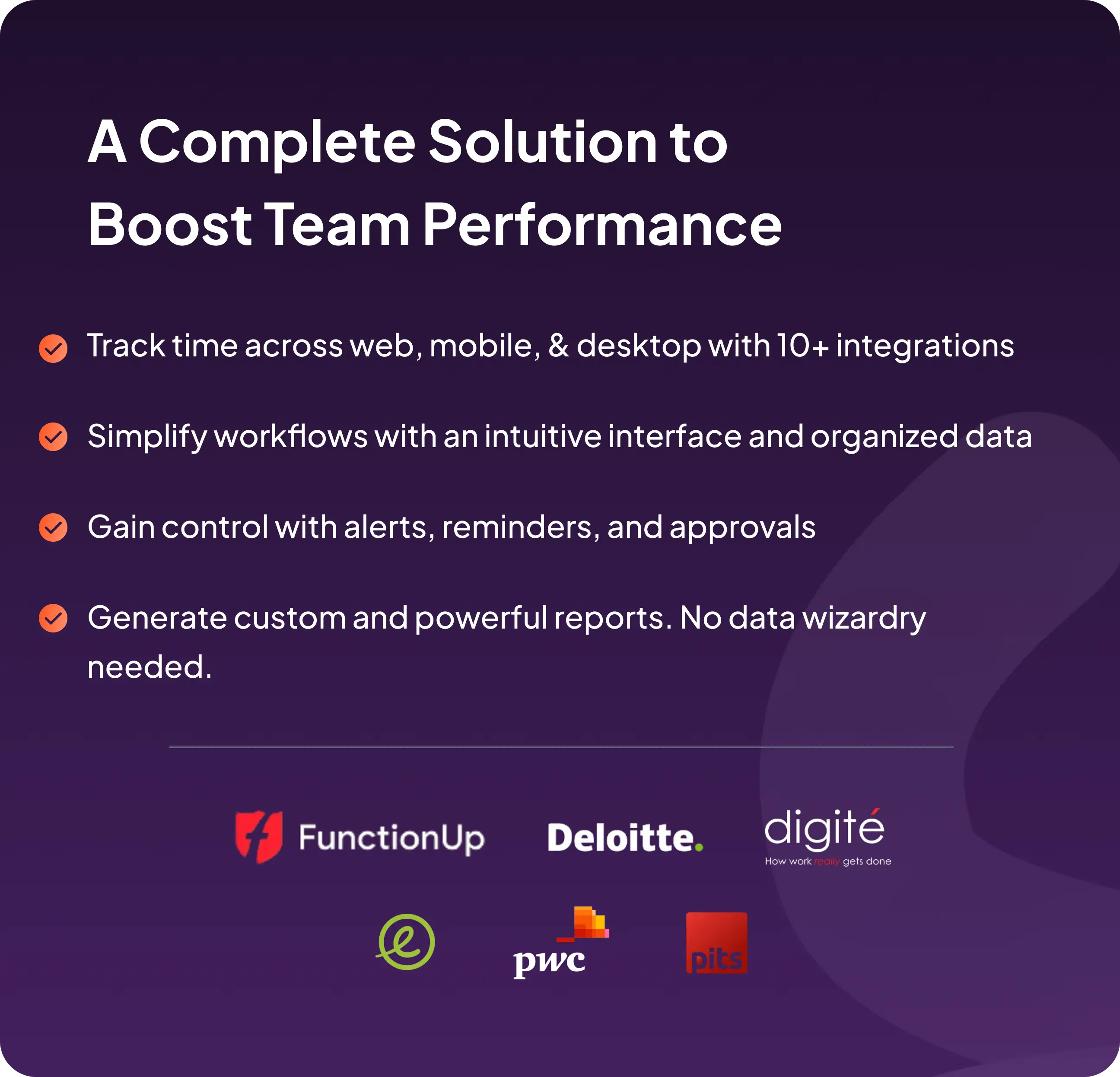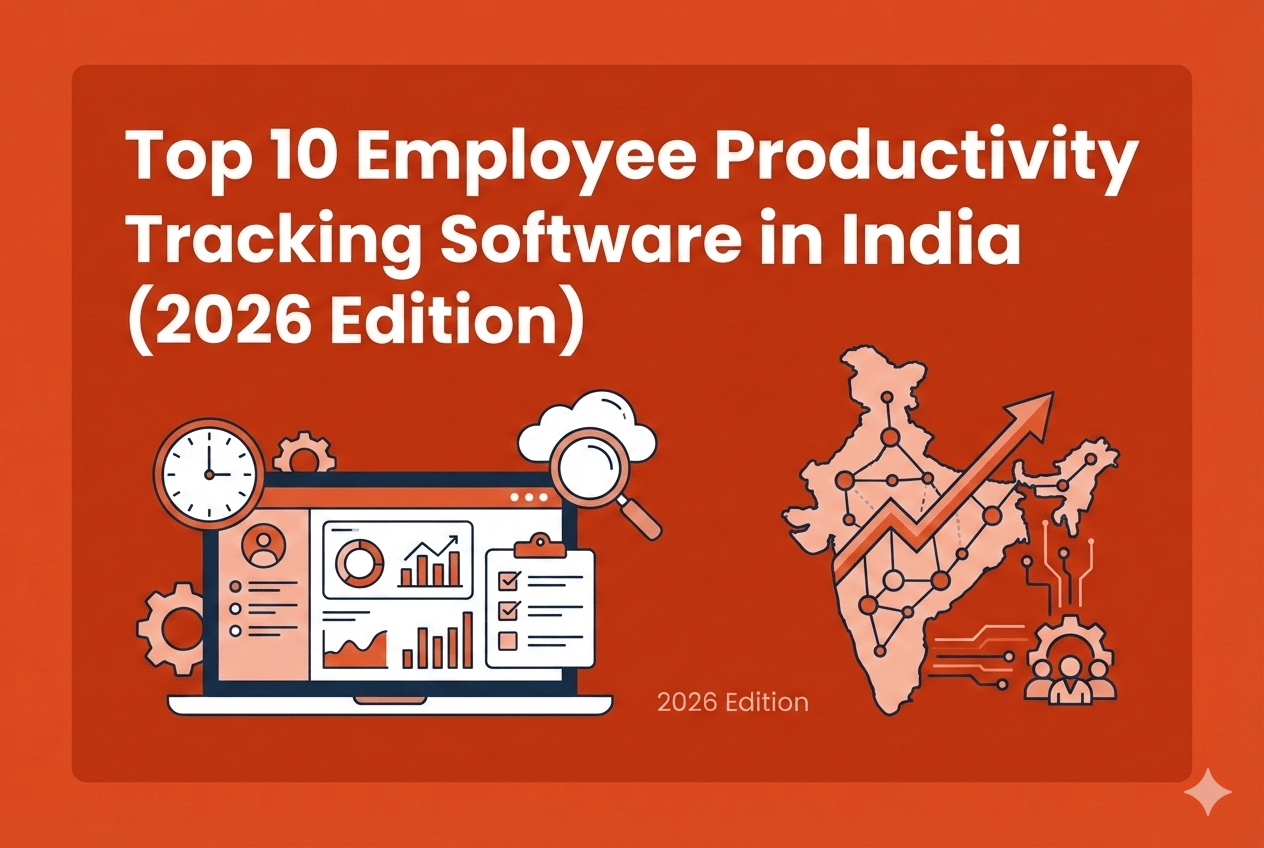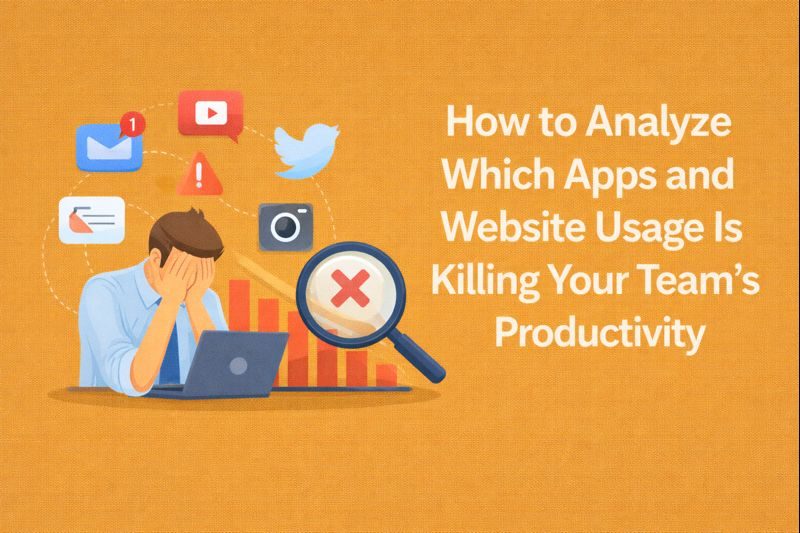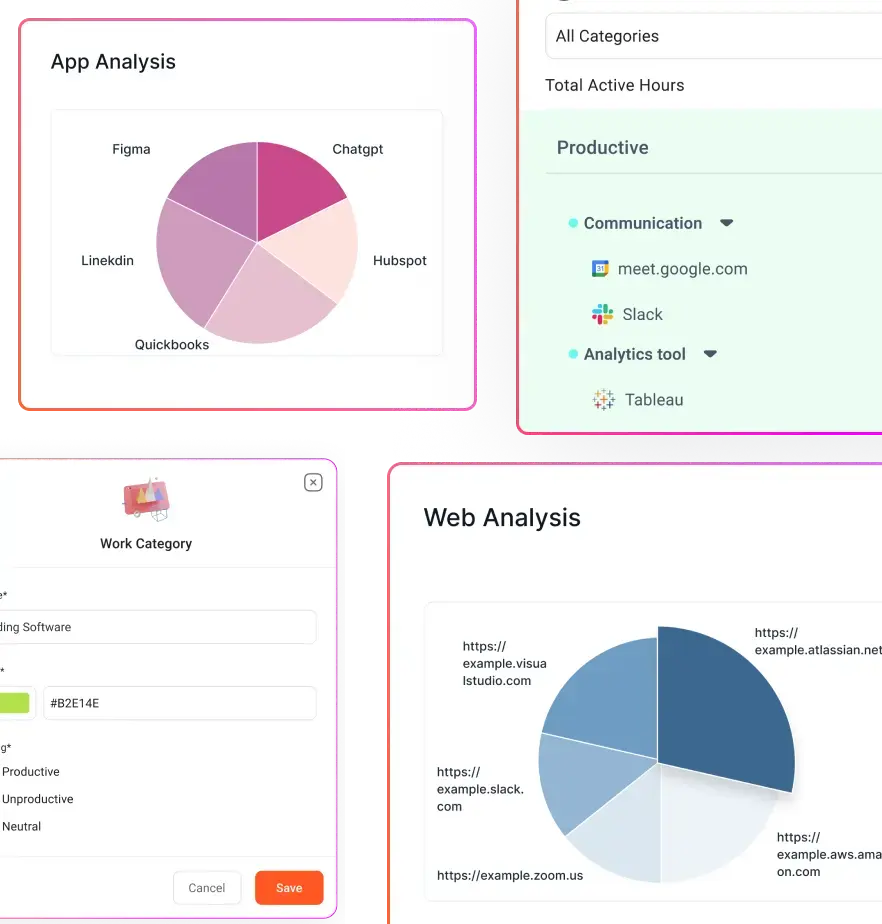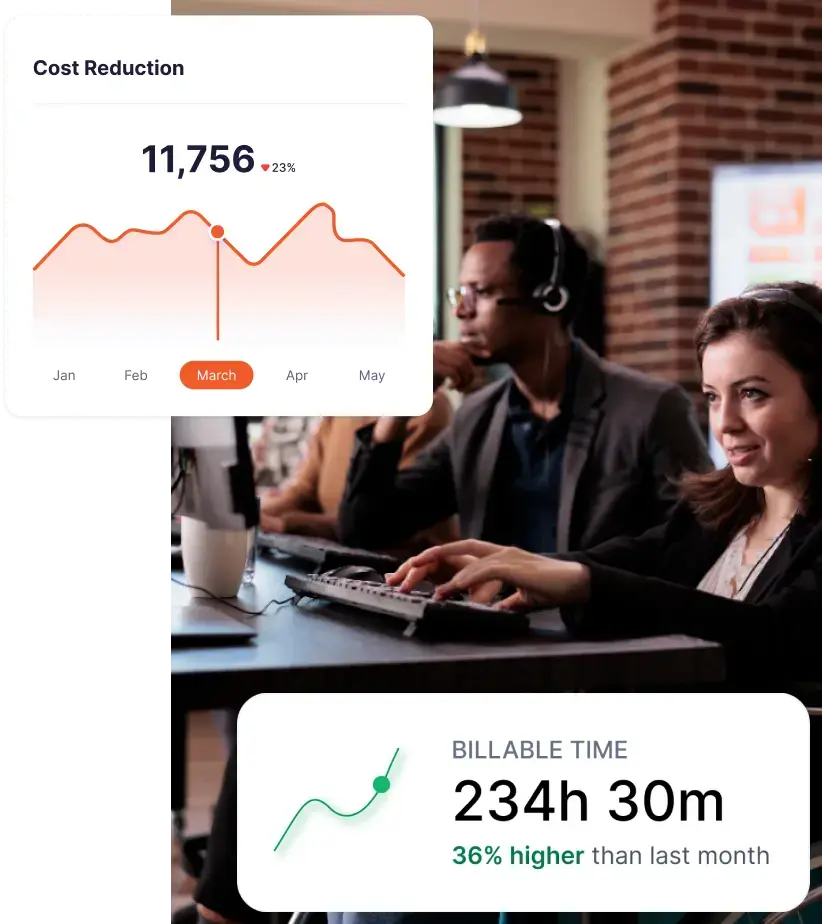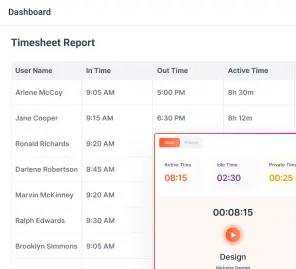Technology is evolving, and it is transforming many industries around us.
The BPO industry is no exception. As this sector is well-known for being extremely tech-savvy, the transition rate is noticeably high. We must recognize the upcoming challenges posed by tech development and digital transformation in the BPO industry for BPO productivity in BPO Tech Challenges. Implementing effective productivity monitoring can help companies adapt to these changes while maintaining high performance standards.
According to a report, digitalization was valued at USD 29,817.0 million in 2022 (market size), projecting a growth of USD 37,320.6 million in 2023 to USD 117,953.2 million by 2032 with an annual 13.7 growth rate within 10 years.
Another source highlighted that,
- In the Business Process Outsourcing market, revenue is projected to reach US$0.37tn in 2024.
- Revenue also shows an expected annual growth rate (CAGR 2024-2028) of 4.43%, resulting in a market volume of US$0.44tn by 2028.
The BPO industry is constantly evolving, driven by advancements and technological to strategic formulation and implementation.
To steer technological development and digital transformation, here is a comprehensive roadmap on BPO tech. Discover new knowledge with this blog.
What is BPO technology?
Business Process Outsourcing is a type of outsourcing where a company pays an external service provider to deliver their services. These technologies perform a multitude of tasks, such as management, automation, data processing, and communication.
The BPO technology plays a critical role in delivering high-quality and efficient BPO services.
Since, technology improves the efficiency, quality, and scalability of BPO services while lowering costs and enhancing customer satisfaction. It also helps lowering errors and freeing up human resources for more difficult jobs, this helps to increase operational speed and accuracy.
Top 5 BPO technology trends of 2025 for BPO Productivity Monitoring
Let’s explore some of the technological trends shaping the Business Process Outsourcing (BPO) tech in 2025:
- Artificial Intelligence (AI): AI has become deeply entrenched in various business processes. BPO providers leverage AI for tasks like chatbots, predictive analytics, and process automation.
- Unified Communications as a Service (UCaaS): UCaaS solutions streamline organizational communication. These services enable seamless collaboration across different channels, making remote work more effective and efficient.
- Cloud Communication: BPO companies are increasingly adopting cloud-based communication tools. Cloud solutions offer scalability, flexibility, and cost-effectiveness, allowing BPOs to manage communication effectively across distributed teams.
- Data Analysis: Data-driven decision-making is crucial for BPO success. Providers invest in data analytics tools to gain insights, optimize processes, and enhance overall performance.
- Customer Journey Mapping: Understanding the customer journey helps BPOs tailor their services. By mapping out touchpoints and pain points, BPO providers can enhance customer satisfaction and loyalty.
Importance of BPO Tech Support
BPO tech support is pivotal in efficiently managing customer inquiries and concerns, often leveraging sophisticated technologies to streamline processes. One such crucial metric used in evaluating the effectiveness of BPO tech support is Average Handle Time (AHT).
AHT encompasses various aspects of customer interactions, including total talk time, hold time and after-call work time. With BPO tech support, specialized providers aim to maintain an optimal AHT to ensure prompt and effective resolution of customer issues while maximizing operational efficiency.
BPO tech support teams can streamline workflows, reduce AHT, and enhance the overall customer experience by harnessing advanced communication platforms, automation tools, and data analytics capabilities.
Major Challenges Of The BPO Tech

Challenges are common but not inevitable. The same goes with the ever-evolving space of the Business Process Outsourcing (BPO) industry.
So, let’s discuss some BPO tech challenges to gain better insights on how to navigate them.
- Security and Data Privacy Management: BPOs grapple with safeguarding sensitive information amidst increasing cyber threats. Instituting multi-layered security protocols, regularly auditing systems for vulnerabilities, and fostering a culture of vigilance among employees is paramount.
- Integration of Advanced Technologies: BPOs are at the forefront of adopting leading-edge technologies like AI, cloud computing, and IoT to enhance operational efficiency.
However, seamless integration with existing infrastructure while ensuring data integrity remains formidable. Investing in robust API frameworks, integration testing, and employing skilled technicians capable of managing complex ecosystems is essential.
- Talent Acquisition and Retention Strategies: The fierce competition for skilled professionals poses a significant challenge for BPOs. Beyond offering competitive compensation packages, providing continuous learning opportunities through upskilling and reskilling programs can attract and retain top talent.
Moreover, a supportive work culture improves employee well-being, growth, loyalty and productivity.
- Optimizing Remote Work Environments: The paradigm shift towards remote work necessitates recalibrating operational frameworks. BPOs must equip remote teams with collaborative tools, establish clear communication channels, and nurture a sense of belonging through virtual team-building activities.
Additionally, cultivating a culture of trust and accountability empowers employees to thrive in decentralized work settings.
- Evaluating Technological Impact Metrics: While investing in technology is imperative, one must quantify its efficacy in enhancing key performance indicators (KPIs).
Developing comprehensive metrics to assess the impact on operational efficiency, service quality, and customer satisfaction enables informed decision-making. Regularly refining strategies based on data-driven insights ensures continuous improvement and innovation.
- Meeting Evolving Customer Expectations: Customers increasingly demand personalized, seamless experiences across multiple channels. BPOs must utilize AI-driven chatbots, voice assistants, and predictive analytics to proactively anticipate and fulfill customer needs.
By harnessing data analytics, BPOs can derive actionable insights to tailor services and strengthen customer engagement.
- The rise of AI: With AI, repetitive tasks like data entry and processing can be automated. It increases employee productivity, efficiency, scalability and cost-effectiveness. As well as identifying patterns in data, making predictions, and providing insights, it can be used to improve operations and make better decisions.
But, AI poses both opportunities and threats.
Thus, BPOs must prioritize skill development in emotional intelligence, problem-solving, and creativity to remain competitive in the market.
- Geopolitical Considerations and Outsourcing Dynamics: Geopolitical, cultural tensions and regulatory changes can impact outsourcing decisions and data sovereignty.
But, analyzing the risk assessments will help mitigate geopolitical uncertainties. Building resilient partnerships with vendors and adhering to stringent compliance standards are essential to risk management strategies.
10 Ways To Resolve BPO Tech Challenges in 2025

The BPO (business process outsourcing) industry is essential to modern business operations with its multi-tasking ability, from customer care to back-office functions.
“We’ve moved from digital products and infrastructure to digital distribution and Web strategy to now into more holistic transformations that are based on mobile, social media, digitization and the power of analytics, and we think it’s a new era requiring new strategies.”- Saul Berman, Chief Strategist, VP & Global Digital Business Strategy Practice Leader for IBM Global Business Services.
Rightly said.
Technology and integration of digital transformation are now essential for BPO companies to stay competitive and meet the changing demands of the century.
Here are a few ways to resolve technological challenges and step into digital transformation.
-
Establishing Vision and Strategy
BPOs need to create a plan aligning with their overall business objectives before starting the journey. So, understand the problems and create a long-term layout for strategic technology adoption.
Establishing a clear vision and prioritizing investments can steer decision-making with measurable results.
-
Cultivating an Innovative Environment

Valuing innovation is essential for BPO companies to thrive in a rapidly evolving tech landscape.
Focusing on creating an environment that;
- encourages experimentation,
- embraces failure as a learning opportunity
- facilitates cross-functional collaboration
- encourage employee creativity
- recognize and reward successful implementations- are all vital components of growth culture.
-
Securing the Cybersecurity Framework

In the digital age, cybersecurity is a top priority for BPO firms handling sensitive client data.
Implementing robust security protocols, encrypting sensitive information, and conducting regular penetration testing are critical to safeguard against evolving cyber threats.
Additionally, educating employees on cyber hygiene practices ensures that security remains a collective responsibility across the organization.
-
Building Agile Technology Infrastructure

A flexible and scalable technology infrastructure forms the backbone of successful digital transformation initiatives in BPOs. Firms can enhance operational efficiency and agility by investing in cloud-based solutions that offer seamless integration and adaptability to future needs.
This could also be the integration of any productivity or employee engagement software. Like, Flowace is a dynamic productivity tool that Enhances BPO Productivity with Efficient Time Tracking Solutions and promotes a healthy work-life balance while empowering individuals and businesses to achieve more in less time.
-
Empowering the Workforce: Upskilling Initiatives

As technology continues to reshape the BPO landscape, upskilling the workforce is crucial to ensure relevance and competitiveness. This is because technology reduces manual labour. According to Chief Learning Officer 2020 Learning States of the Industry survey, 75% of 1,500 L&D professionals agree that their companies will be developing more custom learning content in the upcoming years.
BPO firms must provide targeted training programs on trends like automation and data analytics to bridge the digital skills gap. And, kickstart with a smart workforce.
-
Strategic Deployment of Automation
Automation is a transformative force, offering unparalleled opportunities for efficiency enhancement and operational excellence within BPO operations.
Through meticulous deployment of automation tools, businesses can revolutionize their workflows, alleviating the burden of repetitive tasks and liberating valuable employee resources for more strategic endeavors. It maximizes the technology’s potential and drives unparalleled efficiency gains.
-
Data-Driven Decision Making

In the era of big data, harnessing data analytics is essential for informed decision-making and performance optimization in BPO operations. By collecting and analyzing relevant data, firms can gain valuable insights into process efficiency, customer behavior, and market trends.
The role of continuous improvement initiatives enables continuous improvement, track progress, and drive strategic goals.
-
Customer-Centric Technological Integration

Delivering quality customer experiences is paramount in the BPO industry. Businesses can differentiate themselves in a competitive market with technology to personalize customer interactions, provide omnichannel support, and anticipate customer needs.
AI-driven solutions enable proactive issue resolution and enhance overall customer satisfaction.
-
Change Management Leadership

Change management is a common term among business leaders. Adapting change management leadership will help acquire efficiency, effectiveness and agility. Such leadership skills will help achieve short-term wins or enact large-scale transformation.
Effective change management is critical to successful digital transformation initiatives in BPO firms.
Clear communication of objectives, comprehensive training programs, and employee involvement are essential components of successful change management strategies. Digital transformation can be mitigated while innovation is fostered by involving all stakeholders and emphasizing its benefits.
-
The Future Ahead

Staying abreast of emerging technologies such as AI, blockchain, and RPA is essential for BPO firms looking to maintain competitiveness and drive growth.
Evaluating potential applications of these technologies through use case assessments and proof of concept pilots enables firms to capitalize on new opportunities. Moreover, continuous evaluation and adoption of emerging technologies ensure long-term growth and success.
- Start small and scale gradually: Avoid attempting too much at once. Start with small, achievable projects and progressively gauge the efforts.
- Measure and track progress: Regularly measure the impact of your digital transformation efforts on employee efficiency, customer satisfaction, and cost savings.
- Seek external guidance: Consider partnering with consultants or advisors with expertise in BPO digital transformation.
Way Ahead
“Every industry and every organization will have to transform itself in the next few years. What is coming at us is bigger than the original internet, and you need to understand it, get on board with it, and figure out how to transform your business.” –Tim O’Reilly, founder and CEO of O’Reilly Media.
There are always challenges to overcome.
Implementing strategies such as setting clear visions, fostering innovation, strengthening cybersecurity, and empowering their workforce through upskilling remains crucial.
On top of it, by exploring emerging technologies and seeking the right solutions- navigate the intricacies of transformation and thrive in the evolving landscape of it.



